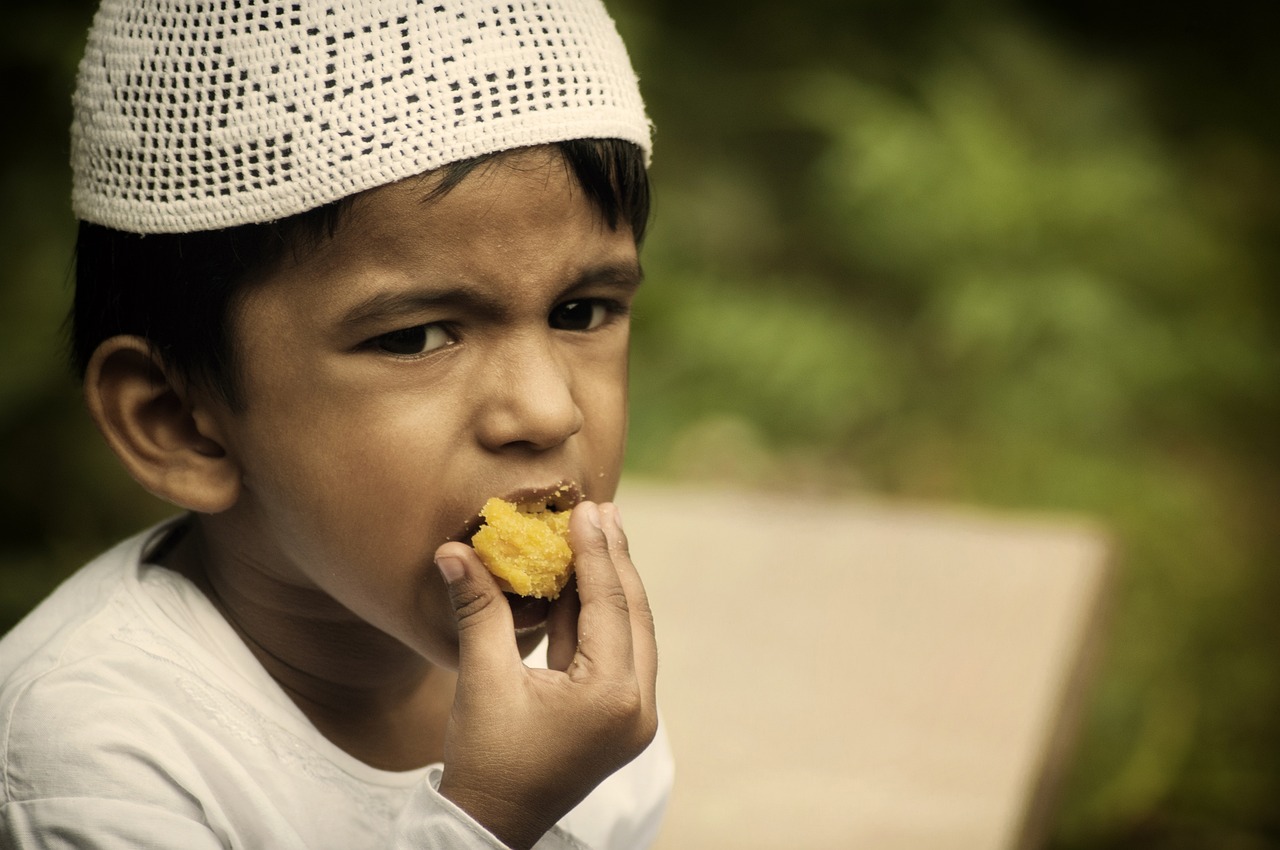Fasting is one of the five pillars of Islam that Muslims observe during Ramadan. This month is one of the holiest months of the Islamic calendar, and many hadiths describe the excellence of Ramadan.
This month, Muslims fast from dawn until dusk, abstaining from food, drinks, and physical intimacy, and try to do as many good deeds as possible. But before opening or breaking their fast, they recite a dua (supplication) to express gratitude to Allah SWT for his blessings.
This blog will dive deeper into these duas, discover their English meaning, and look at their significance for breaking the fast.
Dua For Breaking Fast
اللَّهُمَّ إِنِّى لَكَ صُمْتُ وَبِكَ آمَنْتُ وَعَلَيْكَ تَوَكَّلْتُ وَعَلَى رِزْقِكَ أَفْطَرْتُ
Transliteration:
“Allahumma inni laka sumtu wa bika aamantu wa ‘alayka tawakkaltu wa ‘ala rizq-ika-aftartu.”
Translation:
“O Allah! I fasted for You, I believe in You, I put my trust in You, and I break my fast with Your sustenance.”
When To Recite This Dua
One thing to remember is that this dua is not only for the fasts observed in Ramadan. But, it can be recited anytime someone opens their fast, may it be a fast in Muharram or a fast in Shaban.
This dua can also be recited if a person fasts on Monday and Thursday, just like our Holy Prophet (PBUH).
How To Recite This Dua
The process of reciting the dua is very easy. Here are step-by-step instructions to recite the dua:
- Prepare Iftar: Before you recite this dua, ensure you have your food and drink ready and have your meal before you.
- Start With Bismillah: Bismillah, which is short for Bismillahi r-rahmani r-rahim, translates into “In the name of Allah, the Most Gracious, the Most Merciful,” is the perfect way to add blessings and goodness into any deed.
- Make The Dua: After this, you can recite the supplication given above.
- Continue With Your Meal: After reciting the dua, you can follow the Sunnah of The Holy Prophet (PBUH) and eat a date or drink water. After this, you can finish the rest of your meal.
Significance Of This Dua
Fasting is compulsory in Islam so Muslims can be reminded of the less fortunate and be more grateful to Allah SWT for everything he has blessed us.
When we recite this dua at Iftar (when the fast is broken), we thank Allah SWT for the strength and patience he gave us to observe the fast and the food in our homes for us to break the fast with.
Before this dua, you can also make more supplications to Allah for the well-being of your loved one, forgiveness, success, or anything else you want!
Renewal Of Intention (Niyyah)
It is a Hadith that everything we do as Muslims depends on our intention. And Allah SWT rewards us based on these intentions. Therefore, this also applies to fasting, and when we recite this dua before breaking our fast, we renew our intention of fasting, adding sincerity and solidifying our commitment to this act of worship.
Closeness With Allah SWT
This dua also helps to develop a deeper relationship with Allah SWT, as a person is usually at their weakest when breaking the fast. And the greater a person’s sense of weakness is, the closer he is to humility in front of Allah SWT. This dua helps us gain rewards and cultivate a stronger relationship with our Lord.
Unity And Identity
When Muslims worldwide recite this when breaking their fast, it develops a sense of unity and cultivates a separate identity. It also reminds us that millions of Muslims are simultaneously performing this sacred act of worship.
Following The Sunnah Of The Holy Prophet (PBUH)
The literal meaning of Sunnah is the ‘way to follow.’ It is the term given to actions that Prophet Muhammad (PBUH) performed in his life. One such Sunnah is reciting a dua before breaking the fast. The particular dua that our Holy Prophet (PBUH) used to recite before breaking his fast is below:
ذَهَبَ الظَّمَأُ وَابْتَلَّتِ الْعُرُوقُ وَثَبَتَ الأَجْرُ إِنْ شَاءَ اللَّهُ
Transliteration:
Dhahaba al-zama’ wa abtalat al-‘urooq wa thabat al-ajr, Insha’Allah
Translation:
Thirst has gone, the veins are moist, and the reward is assured if Allah SWT wills.
A hadith of Sunan Abi Dawood describes that Ibn Umar, a companion of the Holy Prophet (PBUH), said that the prophet used to say this before breaking his fast, which establishes the authenticity of this dua.
Dua For Breaking Fast With Other People
When you open your fast in the home of someone, you can recite a different supplication in which you are praying for the other person and earn the reward of doing a Sunnah since our Holy Prophet (PBUH) also recited this dua.
In a Hadidth of Sunan Ibn Majah, when the Holy Prophet (PBUH) opened his fast with Sa’d bin Mu’adh, he recited this dua:
أَفْطَرَ عِنْدَكُمُ الصَّائِمُونَ وَأَكَلَ طَعَامَكُمُ الأَبْرَارُ وَصَلَّتْ عَلَيْكُمُ الْمَلاَئِكَةُ ”
Transliteration:
Afṭara ‘indakum aṣ-ṣa’imūn, wa akala ṭa’āmakum al-abrār, wa ṣallat ‘alaykum al-malā’ikah.
Translation:
May those who fast break their fast with you, may the pious eat your food, and may the angels pray for you.
Conclusion
Although the translations of these duas may vary from different sources, they all have the same meaning: to express our gratitude to Allah SWT for his blessings and the strength he has given us to observe these fasts.

